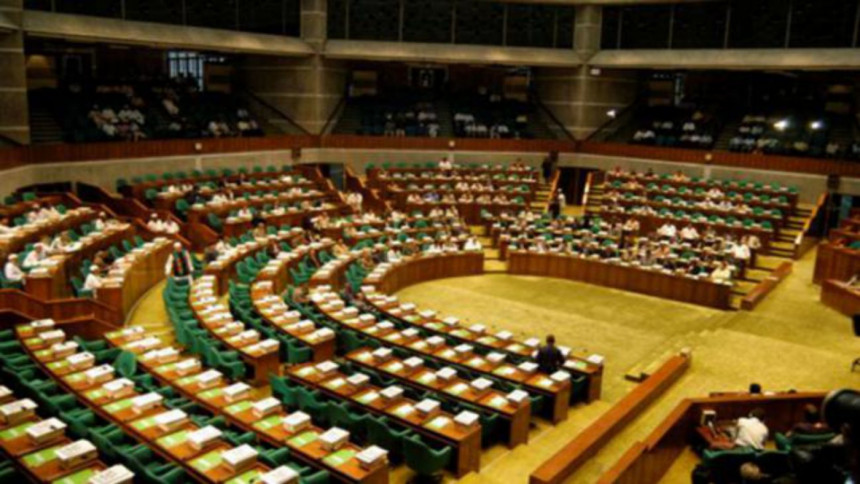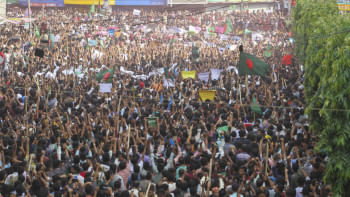Representation and MPs' work in their constituencies

In 2016, I attended a political science workshop at Wroxton College in Oxfordshire in the UK on parliamentary issues (the field is known as legislative studies). At the workshop I presented a paper describing the role and responsibility of Members of Parliament (MPs), as part of a research project administered by University of London, SOAS. The existing work of Members of Parliament (MPs) focuses on formal roles and legislative functions. I argued that there has been little attention given to the informal social relations that go far beyond formal politics. I also argued that there is no definition of the job of MPs—neither in any law, nor in our Parliament Rules of Procedure. Other presenters also believed that the job of MPs (or US Congressmen) isn't officially defined anywhere in the democratic world; at most one can find are descriptions of the job based on what the MPs themselves say their job consists of.
In theory, MPs in Bangladesh have 4 roles to play: as policy advocates, ministerial aspirants, parliament scrutinisers, and constituency members. Beyond these roles, MPs are simultaneously social and political beings when they play their informal role at the constituency levels. Social relation does not arise suddenly with a thunderclap and it does not appear through formal political events; it emerges over years of endless informal social interactions across his or her constituency. In the last two decades, I have seen that not all MPs are same; they have diverse interests and power according to their age, sex and political background. Let me give some examples.
I was interested in finding MPs' interactions in informal settings during their frequent visits to constituencies. By providing ethnographic data from different constituencies, I have shown how constituents who are in dire need of help and support seek the MPs' "indulgences" if they are allowed to have access to do so. MPs are forced to act as if they care about everyone in their constituency.
One MP was telling me that he started from his constituency at midnight and arrives in Dhaka just before the crack of dawn the next day. Three hours later, he shows up at the Supreme Court for practice. In his own words, "I check in on the inhabitants of my electorate every week—this is why they have faith in me," he adds, "When I am physically among them, they become exuberant in hope. They confide in me their desires and disappointments." When asked what kind of problems the constituents pose to him personally, the MP's answer was interesting. As he narrates, "Beginning from the squabbles between husband and wife to disputes with land—they come to me with all sorts of major and minor problems. I summon the police and tell them to respond to the public's needs without undue harassments. This is all they need to be happy; this is what inspires them."
The MPs' efforts to win favour by performing proximity to "the masses" are highlighted by his wearing of clothes long associated with Bengali culture, such as a lungi (a piece of cloth wrapped around the waist). In the case of male MPs, their relatives often contribute to this social process and especially their wives and children. In this case the MP's wife assists him in his philanthropy. She cooks for visitors, a sign of respect, and when she visits the area, she follows the same route as her husband, making many stops on the way, especially in the Unions of the Upazilla, to chat with people or give them a lift into town. MPs and their relatives will go to great lengths to be seen as bestowing benevolence on the poor, and avoiding reports that they forget their constituents as soon as their vote has been cast.
But we cannot take this representation for granted as if it is natural. We're facing a dilemma: MPs are public representatives, but what happens when he or she is socially and culturally insensitive? Those who emphasise the idealised structural roles and duties of MPs can easily miss the symbolic significance of what politicians do. All elected politicians face the challenge that by taking sides with one group of constituents, they often alienate others. So, an important question for us when understanding democratic representation is to ask is how MPs make choices between competing and conflicting interests within their constituency.
Consider this extreme example of a situation that took place as reported in the newspapers. An allegation was made that an MP in Greater Dhaka forced a head teacher to repeatedly "stand and squat holding his ears with his two hands" (kane dhorey uth bosh kora) until he was too tired to continue and fell down. Culturally, there cannot be a more humiliating or shameful act that one can be forced to perform in public in Bangladesh; this is what is done when we want to rob a person of all his sense of dignity and self-respect. Why did a MP commit such abusive act, what were the effects and what does it mean for representation? When a public representative contradicts the ideals propagated in the official discourse of public engagement, his/her representation of one group against another exposes the contradictions inherent in their representative role as well as the divisions in society.
So, crucial for understanding a MP's role and responsibility because it goes to the heart of the challenge of representation. To the best of my knowledge most of our MPs have been the only parliamentarians in the world who through different informal activities often visit their constituents in order to build up their reputation and win support with very different groups of people. This is salutary. MPs claim to represent their constituents, but what does this mean in practice? In a sense the MP is representing some of his/her constituents, but s/he is also alienating others. It shows us that the claim of representation—to represent a constituency as if its interests were homogeneous—is so much more complex that MPs give the impression.
We need to know how social and political relationships are entangled and performed and how different MPs are viewed as well as how they see themselves. Despite the diversity of both politicians and constituents, some aspects of these relationships cut across MPs' age, gender and political background; they are always messy, contain contradictions and require MPs to be shape-shifters. When MPs transgress from shape-shifting to collusion with one group of constituents to marginalise some (or even commit violence), then the representative role breaks down. Such disruptions mean we may have to re-conceptualise our understanding of MPs' work of representation. Recognition of how MPs make choices between competing and conflicting interests within their constituency could enrich debates about their role but also democracy more generally.
Dr Zahir Ahmed is professor of anthropology, Jahangirnagar University. Email: zahmed69@hotmail.com






Comments